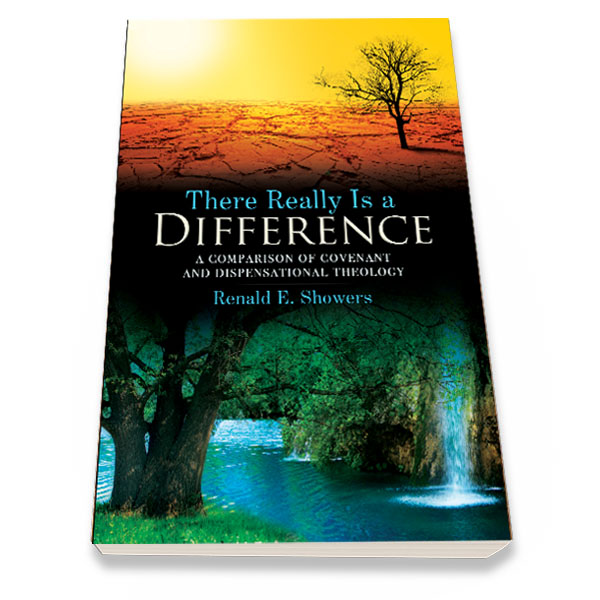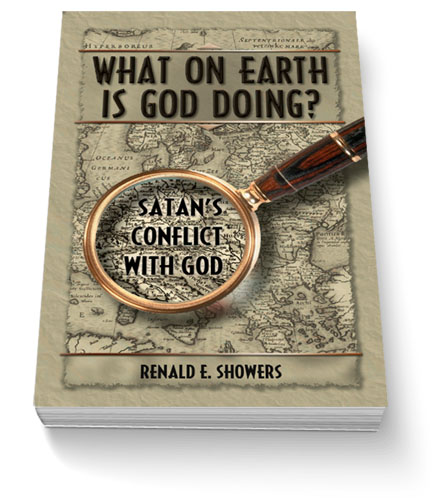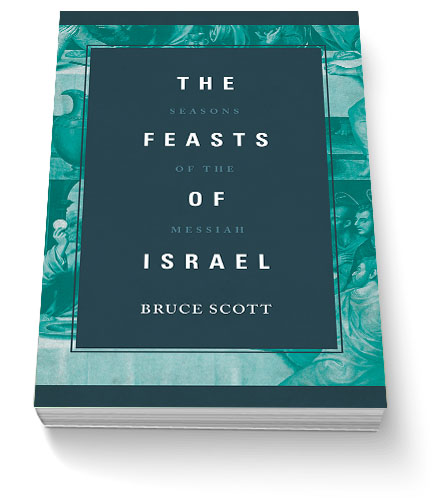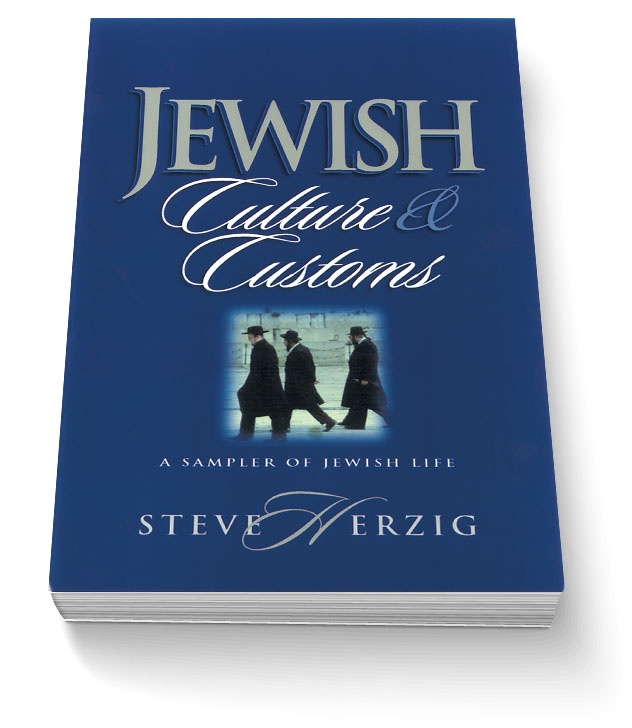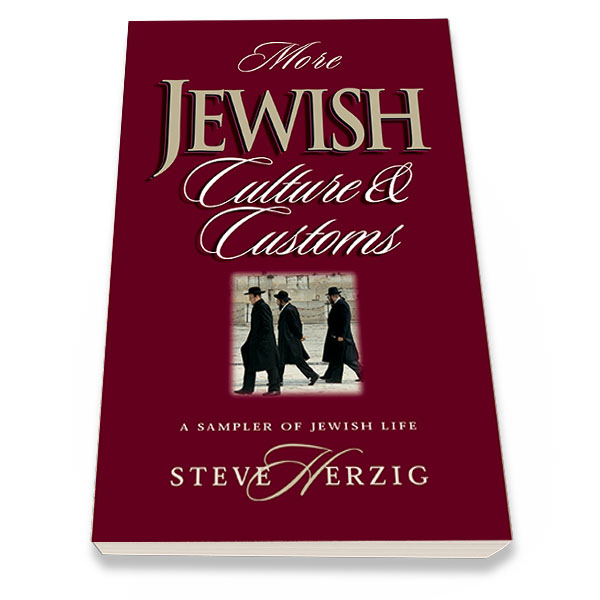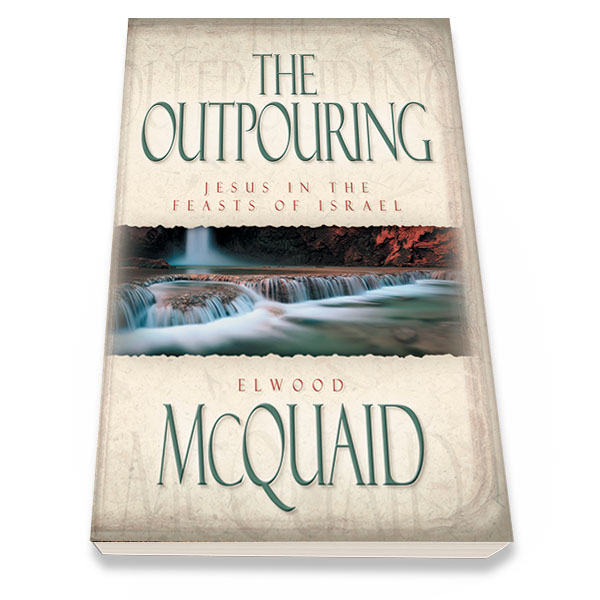Importance of Context
We’re finishing our series where we’re going back to the basics, “How to Read Your Bible.” We thought as we’re all home and have extra time to hopefully spend in God’s Word this would be an encouragement to you. This week, Chris will walk us through the importance of knowing the context of the Bible. Last week we learned about the significance of the culture and the week before, geography. If you missed those episodes we encourage you to listen in our archive section here on our site.
If you’ve listened to us before, you’ll know we talk a lot about how the Bible was written by Jewish men in a Jewish context. If we know the context of the Bible, we can understand what God is saying and to whom He is speaking. And to drive home what Chris has been saying week after week, the Bible isn’t about you! It’s about God and what He is doing. Once these principles are in place, understanding God’s plan of redemption through the ages becomes easier. We hope you’ve enjoyed this 3-part series!
Steve Conover: Welcome to The Friends of Israel Today, I'm Steve Conover, and with me is our host and teacher, Chris Katulka. The coronavirus has been the reason for many life adjustments at work, at home, in the family and even in ministry. We've had to adjust here at The Friends of Israel Today, and our program which is normally produced in our studio has been relocated to our homes where we are recording remotely, and this is definitely something we've never done before, but thankfully we can continue to bring you new and relevant teaching during this time of quarantine.
The coronavirus has brought about a lot of uncertainty in our lives and has made many fearful. If it's not the virus itself, it's the loss of a job or a loved one working in the hospital serving those who are sick. Perhaps you're experiencing fear right now. And in this time of fear, we hear at The Friends of Israel want to pray for you. When you visit our website at foiradio.org, there's a prayer form you can fill out, and when we receive those prayers, we will pray privately for you. These prayers will not be mentioned on air, but our production team will bring them before our loving heavenly Father. Also, while you're at foiradio.org, you can view a video interview Chris did with our frequent guest and colleague, Steve Herzig. We have some other content coming to the site in the next few days, so keep an eye out on foiradio.org for additional content.
Chris Katulka: Steve, some of that additional content actually are the pastors that serve with The Friends of Israel Gospel Ministry that are serving in Israel right now. And I get a chance to talk with Meno Kalisher and another pastor of ours that serves in the area of Tel Aviv, and they get into what it's like serving during this time of quarantine. And so I encourage our listeners not only to let us know what their prayers are right now, especially if you're dealing with fear, we want to pray that the Lord would give you a spirit of faith in this time, but also we would like you to go to foiradio.org to hear from Steve Herzig and our pastors in Israel who have a great work for the ministry that continues in Israel.
Steve Conover: We look forward to hearing those requests. But first in the news, Prime Minister Benjamin Netanyahu approved a basic plan to ease restrictions on economic activity and “stay home” orders, potentially allowing some businesses to open as soon as next week. Netanyahu's office released a statement describing the plan as “responsible, cautious and gradual”, and said it would allow for a limited opening of businesses. This plan must still be approved by the full cabinet.
Chris Katulka: Yeah. Here's my take on this, as I mentioned, spoke with some of our pastors in Israel who are diligently working to shepherd their congregations despite the strict stay at home orders. It's really an oxymoron to tell an Israeli to stay home. They are very, very social people in Israel. They love being with one another, connecting with one another. And this even goes for our pastors who are just so used to ministering and connecting with their people. But this is really good news from Prime Minister Netanyahu. It seems like Israel is beginning to see the light at the end of the tunnel and hopefully, these responsible steps will help bring Israel back to life.
We're continuing our series here on how to read the Bible and there's no better time than now to start reading your Bible. As you're doing your civic duty to stay put, this is a great time to pick up the Scriptures and to dig into God's Word. And I know that's what I've been doing. I've been spending more time reading God's Word, I've been going through the book of Psalms and really just taking time to invest in knowing God more. That's the way God wants us to know him is through His Word, allowing the Holy Spirit to work within us, to change us. And so really this is a great time for us to pick up the Scriptures and to ask God during this difficult time, a time that we're all dealing with together, to ask the Lord, how can I know you more so that I can actually have a lot of confidence? I can have confidence in you during this time of uncertainty?
I've been saying for the past three weeks now that even Mike Lindell, the CEO of My Pillow company who stood up at the White House a few weeks ago at a press conference, encouraged Americans to get into God's Word. So let's ditch the binge watching of Netflix and let's dig into God's Word together, and I want to help you with that. I want to encourage you to get the most out of God's Word.
Listen, the Bible can sometimes be hard to understand. We're talking about several thousand years of separation between the time of the Scriptures being written and today. The Bible was written during a specific time of history, there were global events happening around the Israelites, and God was often speaking to the spiritual condition of his people during these specific times. And this is why knowing the context of the Bible is so important. And so last week we looked at the culture of the Bible, how knowing the culture of the Bible can enhance the way that we understand the basic life and the characters of the Bible and how knowing these cultural norms for them, speak to what God is actually trying to say to us. We specifically looked at the celebration of Pentecost and Hebrew Shavuot in Acts chapter two, what it meant for the Jewish culture of that time and what it means for you as a believer today.
And if you didn't get a chance to listen to last week's program, please go to our website, foiradio.org, and there you can listen to our past episodes in the series and you can even listen to past episodes that go back to when we first started. We've got everything on there for you to tap into, all of the resources available for you at foiradio.org.
Now, before we get into our last part of the series, I want to get on my soapbox for one last time here and remind you of this one truth. And the one truth is this, if you've been listening, you know what it is, but I want to remind you one more time, the Bible's not about you. You are not the center of the Bible. And you know what? That's okay. If you read a passage and then insert your name into the passage, you're actually limiting the work of the Scriptures in your life. So let me start right there, the Bible's not about you. So, what is the Bible about? The Bible is about God's arc of redemption, his design to redeem what was lost at the fall through the work of his son, Jesus Christ. So you shouldn't be asking yourself, God, where am I in this story? Because the Bible isn't a self-help book. God's Word communicates something great, how God's people can have a relationship with him through his Son, God reconciling the world to himself.
So the Bible isn't about you, but it is about how you fit into God's plan, how God's going to use you in this plan of redemption that he has. What an amazing thing to think about, that even though you're not the center of attention in the Bible, that's okay. God wants to use us for his plan of redemption.
So let's move to our last section as we are learning how to read the Bible, some easy tips here. We looked at the geography, we looked at the culture, and now we're going to look at the context of the Bible. Because, see, knowing the context of the Bible helps to orient the believer to whom and to what God is speaking to. There's a reason each book is written. God is speaking into a specific moment that becomes translatable to all believers, but first you must start with the context, which is understanding the surroundings of the Bible, asking questions like, what year was this book or letter written? Or who is the writer and who is the audience and what was the problem that the audience, the people reading the letter or the book we're dealing with in that moment? Knowing the context of the passage will help bring clarity to the meaning of the text, which will only enhance the meaning it has for your life.
One of the passages that I think context brings so much clarity to and helps enhance the meaning in my own life is Jeremiah 29:11. And you all know this passage "For I know what I have planned for you, says the Lord. I have plans to prosper you, not to harm you. I have plans to give you a future filled with hope." I love this verse. I love reading this verse. It often appears on graduation cards. I've seen them on paintings that you can buy on Etsy. It's an amazing verse. It gives us the assurance that our lives won't be purposeless, a plan to not keep us stalled in a current state that we're in. But knowing that God has a plan for us, really, it gives us the assurance that God is moving us through life with a divine purpose because no one wants to be purposeless in their life. But see, if we just read this verse on surface level, it can feel more like a self-help verse. But the verse is so much deeper. This is where context comes into play.
The first question we need to ask ourselves is this, when was the book of Jeremiah written? When did this prophet prophecy? Well, Jeremiah's ministry to Israel spans five decades between 625 BC and 560 BC. Okay, so we know when Jeremiah ministered. Well, now we need to know what's going on. If someone was living a thousand years from now and they found a letter in New York City written on September 12th, 2001, they would need to know what was going on in the world at that time to bring to light the full meaning of the letter. It was the Twin Towers being demolished by terrorists. I mean, it changed the world. Even if someone got a letter today talking about the virus, someone a thousand years from now would have to look back and really find out what was going on that this letter was written or this email or whatever somebody dug up.
And so we have to ask ourselves the question, what was going on in Judah and Jerusalem between 625 and 560 BC that would compel Jeremiah to write such an encouraging passage in Jeremiah 29:11? Were a bunch of Jewish people graduating from university? Well, no, actually it's quite opposite that. Judah and Jerusalem had some major problems during the ministry of Jeremiah. They abandoned God and started to worship false idols and false gods. God was extremely patient with his people, he was long suffering with their sin, waiting for them to repent, waiting for them to turn to him. But eventually God's patience wore thin and he brought the Babylonians, the largest empire known to man in Jeremiah's days, to the doorstep of Judah and Jerusalem. The entire ministry of Jeremiah can be summed up like this, “Judah and Jerusalem, you sinned so much over the years and you never turned back to God that now judgment is coming. You can't defeat the Babylonians so you should just throw up the white flag and surrender. God will not defend you and your desire to stand up against your enemies." Jeremiah's message to surrender and just go into judgment and not fight against the Babylonians and repent actually fell on deaf ears in Jerusalem. He was actually so unpopular, his message was so unpopular, that he was thrown into a pit just to keep him quiet.
So Jeremiah 29:11 was written during a time of uncertainty for the people of Judah and Jerusalem, a great time of anxiety and hopelessness ran through the streets of Jerusalem. And even God, in the midst of this judgment, was leaving his people with a glimmer of hope. And when we return, we're going to look at how this verse applies to us and I want to give you some resources that will help enhance your Bible reading, so be sure to stick around
Steve Conover: With COVID-19 taking over the headlines and effecting the daily routine of our lives, we want to remind ourselves that God is greater than this virus. Many of us have extra time on our hands during the quarantine and it's a good time to catch up on our reading lists, and that's why we want to offer you 19% off your purchase along with free shipping. Go to foiradio.org and there will be a link to take you to our web store. Use the code psalm19 at checkout.
Chris Katulka: COVID-19 is a word that can instill fear, but we want to redeem that word with Psalm 19, with faith. And when we look at Psalm 19, it's actually divided into three sections. It's divided into a section on creation, knowing that God is the creator of everything. He is in control of everything and that he speaks to us through his Scriptures, the law, and it's perfect and it communicates God's desire for us to have faith in him during times of difficulty. And as a result, we want to be servants of the most high God. And I love how Psalm 19 ends in verse 14, it says, "May these words of my mouth and this meditation of my heart be pleasing in your sight, Lord, my rock and my Redeemer."
Steve Conover: Again, you can find the link on our website, foiradio.org. That's foiradio.org. And at check out, use the code psalm19. That's P-S-A-L-M-1-9, all one word, for 19% off your entire order and free shipping. This is only valid online to US residents through the month of April, 2020.
Chris Katulka: Welcome back, everyone. We are wrapping up our series on how to read the Bible, and we looked at how knowing the geography of the Bible can help us and how understanding the Jewish culture of the Bible is really invaluable to knowing more about God's Word. And today, we're looking at the context of the Bible. And we're hoping that when you understand the context of the Bible, it will give you better footing for knowing what God is trying to say to you and to your life today.
I mean, when it comes to context, if you're the kind of person who thinks, "You know what, I'm going to do devotions today" and so you open up in Exodus and then the next day you jump to doing Devos in Philippians. Think about it, you just jumped 1400 plus years through history, one has the Israelites in Egypt and the other has Paul, the apostle Paul, in prison in Rome. So knowing what's going on around the letter or knowing what's going on around the book of the Bible will help enhance your Bible reading. And we were just looking at Jeremiah chapter 29 verse 11, "For I know what I have planned for you says the Lord. I have plans to prosper you, not to harm you. I have plans to give you a future filled with hope." And even in the midst of God's judgment on Israel, which is something we had just been talking about, he was giving his people hope, hope that even though they've hit rock bottom and they have nothing left, hope that even when they were living in a sense of uncertainty of what tomorrow would bring and all of their anxiety and emptiness, God was still saying, I have a plan for you.
I mean, think about it, the Jewish people living in Jerusalem and Judah at that time were going to be physically uprooted from their way of life, forced to abandon their homes and abruptly carried away to a land with a different culture to interact with and people who spoke a completely different language. Their “normal” was drastically changed and yet God, in the midst of this judgment, was saying to his people, I have a plan to prosper them. "I have a future filled with hope." This verse really makes better sense for a crisis like the one that we're in right now. Maybe you're listening right now and you've contracted coronavirus or you have a loved one who has, or maybe you lost your job due to the coronavirus restrictions, or maybe your business is closed, or maybe you're just dealing with depression or anxiety about the coronavirus and the uncertainty that comes from it. You're just at rock bottom. And listen, that's what this verse is all about. That's when this verse matters the most "For I know what I have planned for you, says the Lord. I have plans to prosper you, not to harm you. I have plans to give you a future filled with hope." Why? Because it's all rooted back in God's promises. And God's promises are sure. They are greater than the judgment that Israel was about to go through and Judah was about to go through, and they're greater than this coronavirus.
See how important context is? It's nice to use this for graduation ceremonies and other events and to see it on paintings and whatnot, but the reality is this, in its context, God is reminding those who he loves, I have a plan, I have a future for you and it's filled with hope. So even when you hit rock bottom, he's still going to be there with a plan and a future for you.
Okay, so let me transition here for a minute because as you might've heard in our ad earlier in the show, we're offering 19% at our online store, and we have some great resources for you to help enhance your Bible reading. The two books that have really helped me so much in my Bible studies come from a previous Bible professor of mine and friend and colleague, Dr. Renald Showers. His two books, There Really is a Difference, which looks at the two ways the Bible is commonly interpreted, and Rennie argues that the best method for reading the Bible is its literal approach is one great book. There Really is a Difference. The other book I like from Rennie is, What on Earth is God Doing? These two books will guide the reader to see how to interpret the Bible and also how to know God's overarching plan of redemption.
Other books for knowing Jewish culture and customs are Bruce Scott's book on The Feasts of Israel and our good friend Steve Herzig’s books, Jewish Customs and Culture. These are great resources and you can get them right now at 19% off at our store at foiradio.org. But I really hope that this has been an encouraging time for you to know how to dig into God's Word, to get the most out of God's Word because when we hear what God is actually saying, it speaks deeper and greater truths into our life to shape us more into the image of his Son.
Steve Conover: Chris, I'll add one more book for our listeners to put on their list, and that's The Outpouring by former host of this program and also former executive director, Elwood McQuaid. The Outpouring is a study of the gospel of John. And you can see the culture of the people come through the Feast of Lights and just different elements that come through in that book that were really eye opening for me. It's really part of our DNA, isn't it here at The Friends of Israel?
Chris Katulka: It really is. And I copy what you say on that, that book is a great book for understanding Jewish culture and customs in the book of John.
Steve Conover: And we'll make sure to have a link to all these resources in our show notes this week.
Steve Conover: Now, Apples of Gold, a dramatic reading from the life and ministry of Holocaust survivor, Zvi Kalisher.
Mike Kellogg: Many school children in Israel have never heard of the Holocaust, so when Holocaust Memorial day draws near, schools look for survivors to come tell what they experienced during World War II, so schools invite me to speak. Ordinarily, I cannot go to a school and speak of faith in Christ. But when they call me, I am free to speak about Him in whom I have believed. This is a wonderful opportunity to tell the children something they have never heard, the truth about our Savior, Jesus Christ.
Recently, when I was speaking at a school, the students asked, how I came to believe as I do. "After all," one said, "We are Jewish." Yes, we are the chosen people of God. I explained it is our obligation before God to tell people the truth. "But you speak about another faith", a student said. So I ask, "To whom was the Holy Bible given? "To the people of Israel", they all declared. "Yes", I said, "and as his chosen people, do we have the right to choose which parts of the Bible are good to read and which are not? Do the rabbis have a right to say which chapters of the Bible are kosher and which are not?" "This is strange. We've never heard anyone speak as you do." Then they all wanted to know which chapter of the Bible the rabbis claim should not be read. I replied, "Have you read Isaiah chapter 53? Have your teachers ever spoken to you about this chapter?" The students all agreed they had not read Isaiah 53. I told them, "I will read it for you or you may read it and I will listen. After, we will have time for questions to see if we can determine why the rabbis do not teach you the truth about what is written here."
So the students took turns reading. Afterward one asked, why is this such a secret? "The Bible" I said, "was written by the Holy Spirit of God. No one has the right to erase anything from this Holy book, not even a single letter. Do you see what they have done? They do not want the chosen people of God to know the truth and to know what great things God has done for us when, as you know, it is hard to fight against the truth, especially against what was written by the Holy Spirit of God." The students then started asking me questions such as, "Are you one of us? Are you an Israeli?" "Oh, I am surely an Israeli and I believe all that is written in the Bible. And if that is not enough for you, I have fought in every war beginning with the War of Independence in 1948 through the Yom Kippur War in 1973. The ultra Orthodox do not serve in the Israeli army."
The students continued to ask good questions and slowly we came to the subject of how to place your faith in the Lord. At the end of the class, they said this was the most interesting lesson they ever had and one they will never forget.
Steve Conover: Thank you for being with us today, Chris. Next week we're going to highlight a few important things going on here at The Friends of Israel.
Chris Katulka: Yeah, next week is our ministry highlights show. We're going to be looking at certain ministries of The Friends of Israel, and I really hope that you come back to listen because we have so many amazing things happening at The Friends of Israel Gospel Ministry. And also I just want to remind our listeners, be sure to go to foiradio.org and fill out a prayer form. If you're feeling fearful right now, you have anxiety or you just want to pray for somebody or for yourself, go to foiradio.org and fill out your prayer form, we will be sure to pray for you.
Steve Conover: Our host and teacher is Chris Katulka. Today's program was produced by Tom Gallione, co-written by Sarah Fern. Mike Kellogg read Apples of Gold. Our theme music was composed and performed by Jeremy Strong. I'm Steve Conover, Executive Producer. The Friends of Israel Today is a production of The Friends of Israel Gospel Ministry. We are a worldwide evangelical ministry proclaiming biblical truth about Israel and the Messiah while bringing physical and spiritual comfort to the Jewish people.
Online Store Sale!
With COVID-19 taking over the headlines and affecting the daily routine of our lives, we want to remind ourselves that God is greater than this virus!
Many of us have extra time during the quarantine, and it’s a good time to catch up on our reading lists. That’s why we want to offer you 19% off your purchase along with free shipping in our webstore. Use the discount code PSALM19 at checkout.
*Offer valid for online orders excluding subscriptions for U.S. customers only through April 30, 2020.
HOW CAN WE PRAY FOR YOU?
Let us know how we can pray for you! You can fill out a form HERE and we will pray as a team for you. Please know these are private and will not be shared.
FEATURED RESOURCES
CLICK ON THE BOOK IMAGE TO ORDER!
Apples of Gold: Holocaust Memorial Day
When Holocaust Memorial Day drew near, schools looked for survivors to come tell what they experienced during World War II. Since Zvi was one of the few remaining survivors able to tell his story, he was invited to speak at a school. But Zvi didn’t come just to share his experiences in the Holocaust; he came to give the true Word of God to all the students! Hear what happened in this perfect opportunity to speak of faith in Christ in a lesson that a group of school children would never forget.
Zvi’s story is available in Elwood McQuaid’s book, “Zvi: The Miraculous Story of Triumph over the Holocaust,” available at our online store.
More stories from Zvi are also available in his book, “The Best of Zvi,” available at our online store.
Music
The Friends of Israel Today and Apples of Gold theme music was composed and performed by Jeremy Strong.



